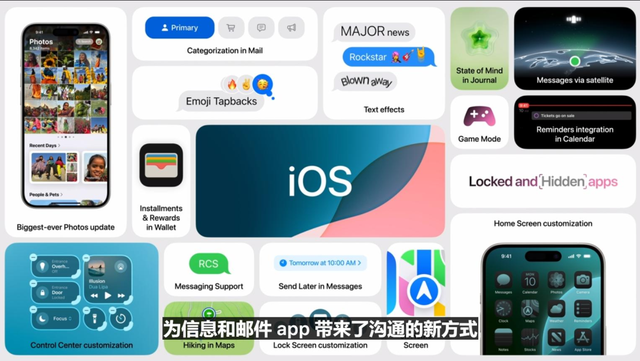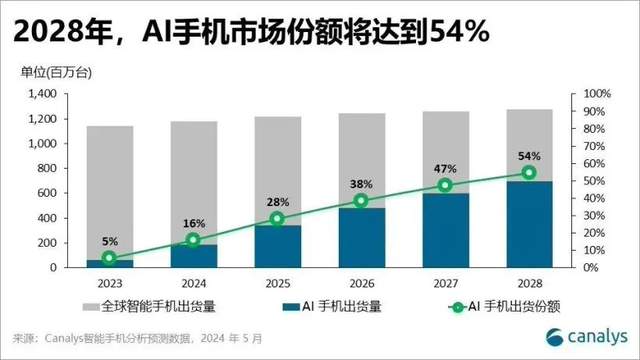Apple Confident: iPhone 16 to Have 100 Million Units in Stock, 20% More Than Previous Generation, AI as the Winning Edge
![]() 07/10 2024
07/10 2024
![]() 790
790
If everything goes as planned, Apple will release its new flagship smartphone, the iPhone 16, in September this year.
Regarding this phone, most details have already been exposed. The ID design remains largely unchanged, with the entire series upgraded to 8GB of RAM and equipped with AI capabilities, known as "Apple Intelligence," which Apple calls "Apple Smart."
The entire series is expected to use the A18 chip, with the high-end version potentially being the A18 Pro, while the low-end version may simply be the A18. Both adopt TSMC's 3nm process, and there will be improvements in battery life and camera performance.

Of course, consumers are not particularly concerned about memory, appearance, or chips, and Apple does not emphasize these aspects either. For Apple, it has always been about downplaying specifications and emphasizing functionality and smoothness.
Therefore, the most significant aspect of this year's iPhone 16 is its AI capabilities. The English version will offer AI this year, while non-English versions will follow suit next year.
However, the non-English versions do not include the mainland China version of the iPhone 16. The domestic environment is more unique, and OpenAI is not available. For Apple AI to take root in China, a Chinese AI partner needs to be found, and no decision has been made yet.

Despite this, Apple is highly confident about the popularity of the iPhone 16.
Recent media reports suggest that Apple's production target for the iPhone 16 series is approximately 90 to 100 million units, which has been confirmed by another company in Apple's supply chain.
In contrast, Apple's production target for the previous generation iPhone 15 was only around 80 million units. This indicates that Apple is highly confident in the new iPhone 16 series and its AI capabilities, as evidenced by a 20% increase in production targets.

Indeed, Apple's AI capabilities are impressive, integrating seamlessly into the system to provide a range of convenient interactive experiences, including an enhanced Siri voice assistant, a Mail app capable of generating complex replies, and a Safari browser that aggregates web information.
More importantly, Apple has turned AI into a capability that can be provided externally. Third-party apps can also utilize Apple's AI capabilities, which can span across different apps and third-party services. This is something that no Android phone can currently match.
It is not difficult to understand why Apple is confident. Truthfully, Apple's AI capabilities are indeed formidable.
According to Canalys data, in the first quarter of 2024, the top five vendors in global AI phone shipments were Apple, Samsung, Xiaomi, vivo, and OPPO, with market shares of 57%, 29%, 4%, 4%, and 3%, respectively.

Apple is already far ahead, but it's worth noting that in the first quarter, its phones didn't have significant AI capabilities. Once the iPhone 16's AI capabilities are realized, it will be a dramatic change compared to previous Apple phones, making it even more sought-after.
According to Canalys data, the AI phone market share will reach 16% in 2024 and 28% in 2025, up from just 5% in 2023. Clearly, AI will be the next growth point for mobile phones.
With its powerful AI capabilities, the iPhone 16 is bound to be a hit, and it's not surprising to see sales growth.

Of course, as Apple promotes AI capabilities globally, it also faces a challenging task in China, where it needs to figure out how to implement AI effectively. China is one of Apple's largest sources of revenue, accounting for around 15% of its total revenue.
Therefore, Apple is unlikely to abandon AI capabilities in the Chinese mainland market, but it faces difficulties due to the unavailability of OpenAI. Choosing the right partner will be crucial, as it may determine the success of Apple's sales in China.








